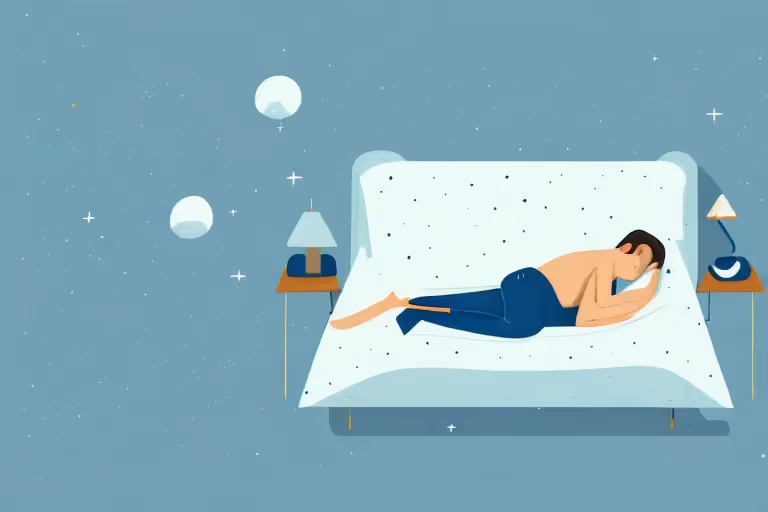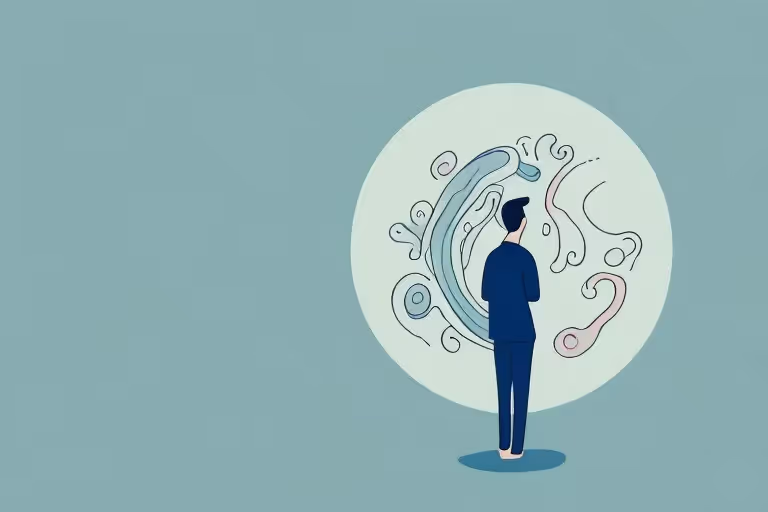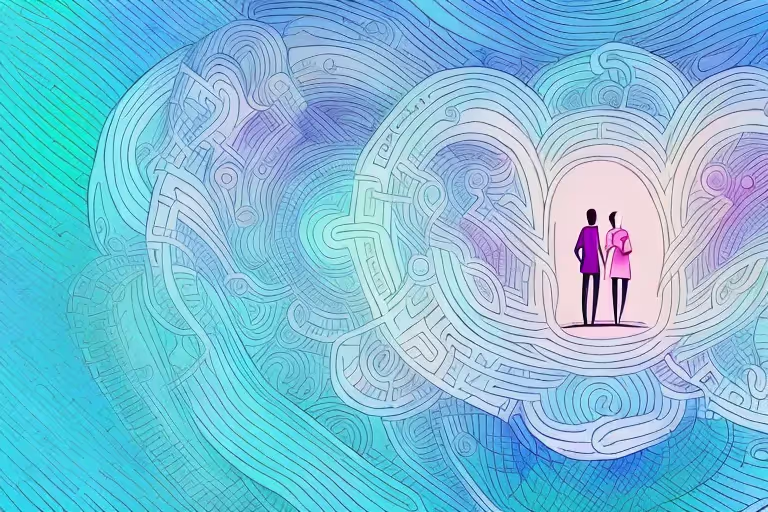If you're one of the many individuals who struggle with insomnia, you understand just how frustrating it can be to lay awake in bed, unable to find rest. The consequences of chronic sleep deprivation can be detrimental to your overall health and well-being. While there are numerous methods for treating insomnia, one medication that has gained popularity in recent years is gabapentin. In this article, we will explore the relationship between gabapentin and insomnia, understand how gabapentin works, and discuss the potential pros and cons of using this medication for treating sleep disorders.
Understanding Insomnia
Insomnia is a common sleep disorder that affects millions of people worldwide. It is characterized by difficulty falling asleep, staying asleep, or both. There are various causes of insomnia, and these can range from stress and anxiety to certain medical conditions or medications. The effects of insomnia on one's health can be far-reaching, impacting both physical and mental well-being.
When it comes to understanding insomnia, it's important to delve deeper into the causes and effects of this sleep disorder. By exploring the factors that contribute to insomnia and the potential consequences it can have on an individual's health, we can gain a more comprehensive understanding of this condition.
Causes of Insomnia
Insomnia can be caused by a multitude of factors. Stress and anxiety are often major contributors, as racing thoughts and worry can make it difficult to quiet the mind and fall asleep. However, it's not just everyday stress that can lead to insomnia. Major life events such as job loss, divorce, or the loss of a loved one can also trigger sleep disturbances.
In addition to psychological factors, certain medical conditions can disrupt sleep patterns and contribute to insomnia. Chronic pain, for example, can make it challenging to find a comfortable position to sleep in, while respiratory disorders like asthma or sleep apnea can cause interruptions in breathing during the night.
Moreover, lifestyle choices can play a significant role in the development of insomnia. Excessive caffeine consumption, particularly close to bedtime, can stimulate the nervous system and make it difficult to fall asleep. Irregular sleep schedules, such as frequently changing work shifts or jet lag from traveling across time zones, can also disrupt the body's natural sleep-wake cycle.
Effects of Insomnia on Health
The effects of insomnia on health go beyond feeling tired and fatigued. Lack of sleep can have a profound impact on cognitive function. When we don't get enough restorative sleep, our ability to concentrate, think clearly, and remember information can be significantly impaired. This can have a negative impact on academic or professional performance, as well as daily tasks that require mental focus.
Furthermore, chronic sleep deprivation can weaken the immune system, making individuals more susceptible to illnesses. Research has shown that sleep plays a crucial role in supporting the body's immune function, and when we don't get enough sleep, our immune system's ability to fight off infections and diseases is compromised.
It's also important to recognize the link between insomnia and mental health. Chronic sleep deprivation has been associated with an increased risk of developing mental health conditions such as depression and anxiety. The relationship between sleep and mental health is complex, with sleep disturbances often exacerbating existing mental health issues and vice versa.
In conclusion, understanding insomnia involves exploring its causes and effects on health. From stress and anxiety to medical conditions and lifestyle choices, there are numerous factors that can contribute to the development of insomnia. The consequences of this sleep disorder extend beyond feeling tired, affecting cognitive function, immune health, and mental well-being. By recognizing the multifaceted nature of insomnia, we can better address and manage this prevalent sleep disorder.
What is Gabapentin?
Gabapentin is a medication that was initially developed to treat epilepsy. However, it has also been found to be effective in treating chronic pain conditions and certain mood disorders. While it is not approved specifically for treating insomnia, some healthcare providers may prescribe gabapentin off-label for sleep disorders.
The Origin and Uses of Gabapentin
Gabapentin was first discovered in the 1970s and has since become a widely used medication in the field of neurology. It primarily works by calming overactive nerve signals in the brain, thereby reducing seizures. Apart from its role in epilepsy management, gabapentin is also prescribed for conditions such as neuropathic pain, restless leg syndrome, and fibromyalgia.
How Gabapentin Works
Gabapentin works by binding to certain calcium channels in the brain, which reduces the release of certain neurotransmitters involved in the transmission of pain signals. By modulating these neurotransmitters, gabapentin can help alleviate pain and also produce a calming effect, which may aid in promoting sleep.
Gabapentin and Insomnia
Research has indicated that gabapentin may have potential benefits for individuals struggling with insomnia. Studies have shown that gabapentin can increase total sleep time and improve sleep quality. Additionally, it has been found to reduce the time it takes to fall asleep and decrease the number of awakenings during the night.
Research on Gabapentin's Effect on Insomnia
In a clinical trial involving individuals with insomnia, gabapentin was found to significantly improve several key sleep parameters. Participants experienced improvements in sleep latency, sleep efficiency, and overall sleep quality. These findings highlight the potential effectiveness of gabapentin for managing sleep disorders.
How Gabapentin Helps with Insomnia
While the exact mechanism through which gabapentin improves insomnia is not fully understood, it is believed to be related to its calming effect on the brain. By reducing nerve activity, gabapentin may help individuals relax and fall asleep more easily. Furthermore, its ability to improve sleep quality may contribute to waking up feeling more refreshed and rejuvenated.
The Pros and Cons of Using Gabapentin for Insomnia
Before considering the use of any medication, it is important to weigh the potential benefits against possible drawbacks. Gabapentin is no exception. While it may offer relief for some individuals struggling with insomnia, it is essential to be aware of both the advantages and potential side effects.
Benefits of Gabapentin for Insomnia
One of the primary benefits of gabapentin for insomnia is its ability to improve sleep quality. By enhancing the duration and depth of sleep, individuals may experience increased daytime alertness and improved cognitive function. Furthermore, gabapentin may be a valuable alternative for individuals who have not found success with other sleep aids or who wish to avoid the potential dependence associated with certain medications.
Potential Side Effects of Gabapentin
Like all medications, gabapentin can cause side effects. Common side effects include drowsiness, dizziness, and coordination difficulties. It is important to follow the recommended dosage and report any concerning side effects to a healthcare professional. Additionally, gabapentin should not be abruptly discontinued without medical guidance, as it may lead to withdrawal symptoms.
Gabapentin Dosage for Insomnia
As with any medication, it is essential to determine the appropriate dosage for maximum efficacy and minimal side effects. Healthcare providers carefully consider various factors when prescribing gabapentin, including the severity of the sleep disorder and the individual's overall medical history.
Determining the Right Dosage
The dosage of gabapentin for insomnia varies depending on individual needs. Healthcare providers typically start with a low dose and gradually increase it if necessary. It is essential to follow the prescribed dosage and consult with a medical professional before making any changes.
Adjusting Dosage Over Time
Over time, your healthcare provider may adjust the dosage of gabapentin to optimize its effectiveness. It is important to communicate any changes in your symptoms or any concerns you may have. Regular check-ins with your healthcare provider will ensure that your dosage is appropriate and that you are receiving the maximum benefits from gabapentin.
In conclusion, gabapentin shows promise in the treatment of insomnia, with studies suggesting improvements in sleep quality and duration. However, it is essential to weigh the potential benefits against the possible side effects and consult with a healthcare professional to determine the most appropriate course of treatment. As with any medication, gabapentin should be used under medical guidance and alongside other healthy sleep habits. If you continue to struggle with insomnia, consider exploring additional resources such as the Aura Health App, which offers guided meditation, sleep stories, and relaxation techniques to support your journey to a restful night's sleep and overall well-being.
Aura is Your All In One App for Meditation, Mindfulness Wellbeing
Find peace every day with one app for your whole well-being. There is no one-size-fits-all solution to mental well-being. Aura is the first all-in-one wellness app that learns how to best help you. Discover an endless library of expert-created tracks for your well-being, all taught by the world’s best coaches, therapists, and storytellers. With Aura's personalized recommendations, you can find peace every morning, day and night.



.webp)






.avif)

%20(1).avif)


.avif)
.avif)
.webp)


.avif)


















































































































.avif)

















.svg)









